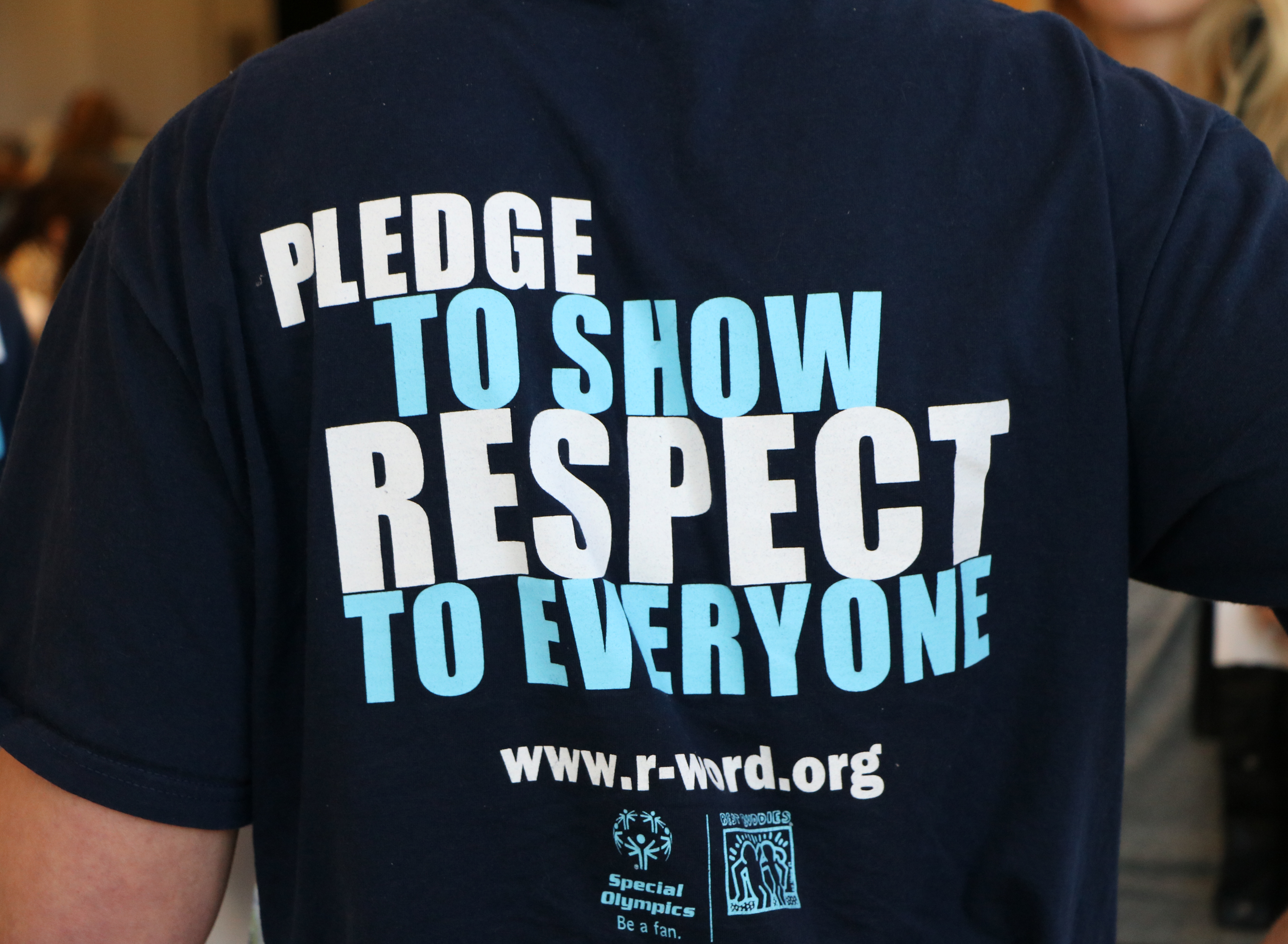End the word
By Jasmina Chatani

It’s 2018. I have to remind myself each time someone I know uses the R word. They – no – society should know better than to use such degrading, insensitive language. My jaw shouldn’t have to drop because my professor used the R word in class, even if he did apologize and admit he was adjusting to the “new” term, intellectual disability. I shouldn’t be disappointed when a classmate uses the word to describe the “stupidity” of her significant other.
What really gets me is that the R word affects not only me and perhaps like-minded people who cringe when they hear it escape a supposedly sophisticated colleague’s mouth, but more importantly, individuals with disabilities. It feeds into and reinforces the stigma that they are less than competent, unworthy of support, simply “in the way”.
It’s a word that shouldn’t be used at all. Fortunately, it’s one that advocates here at the University of Delaware and elsewhere will ask others to permanently stamp out. Wednesday marks the annual Spread the Word to End the Word awareness day, established nationally nine years ago to encourage people to stop using the R word. Supporters of the movement organize campaigns and host signings, where people pledge tolerance.
Best Buddies and Career and Life Studies Certificate program staff and students had planned Wednesday to ask other students and staff to sign a supportive banner. Because of the expected snowstorm, they will reschedule their event for sometime next week. Join them in their efforts! Additional initiatives that promote inclusion and diversity will no doubt be on display, if not tomorrow, on other days. Previously on Spread the Word to End the Word awareness day, Newark High School students attempted to button their shirts while wearing rubber gloves and read stories while holding marshmallows in their mouths to give them a sense of what life can be like for individuals with disabilities who struggle with social and practical skills. Elsewhere, from the Northeast to the Sun Belt, bands made up of individuals with intellectual disabilities have performed while local community news channels hosted advocates who championed another R word: respect.
It’s all encouraging. But more – far more – is needed. We need to carry our efforts beyond a designated day to speak up whenever we hear someone use the R word. We need to volunteer with organizations, such as Best Buddies and Special Olympics, that are dedicated to ending prejudice toward individuals with intellectual disabilities. We need to educate others about cultural sensitivity, promote positive school climate initiatives, and so much more.
By promoting ability, encouraging understanding and fostering engagement, tomorrow and every day, we can eliminate use of the R word and come closer to bringing about a society that empowers and respects all its members.


Comments